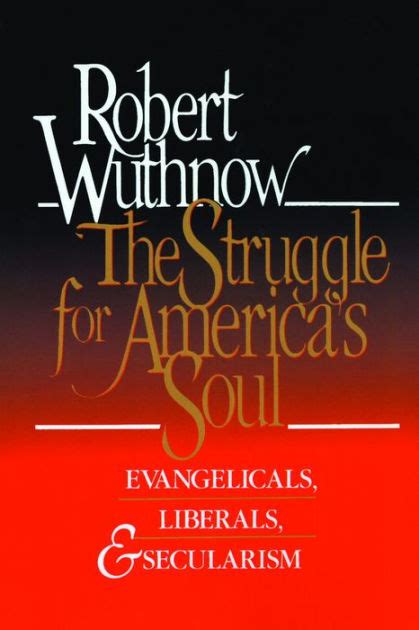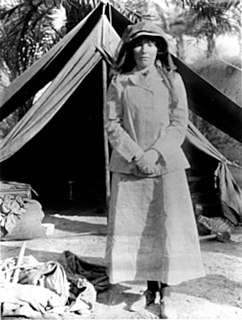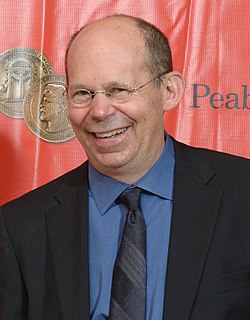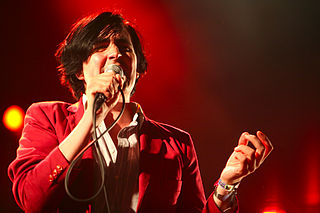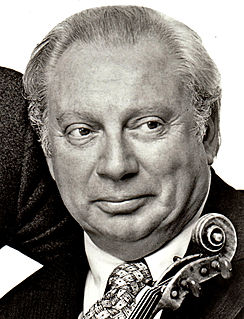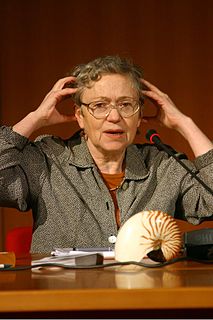Top 341 Outsiders Quotes & Sayings - Page 6
Explore popular Outsiders quotes.
Last updated on April 21, 2025.
Of course you can more easily recognise the outsiders because they have a different skin color. But let us take for instance the relationship between the White Anglo-Saxon Protestant majority in America and the negroes. What is important here is that the negroes were the descendants from slaves and were excluded from power, while the white majority kept them at bay, kept them down, kept them where they are. If the negroes in the future became assimilated and acquired equal power access, if there were a black president, then many of these things would change.
Each of us is precious to God because each of us has their name written on the palms of God's hands. And God says there are no outsiders - black, white, yellow, short, tall, young, old, rich, poor, gay, lesbian, straight - everyone. All belong. And God says, I have only you to help me realize my dream. Help me.
Those who dismiss rappers as vulgar outsiders miss the way that Jay-Z and Kanye embody the American dream: starting from humble beginnings, both rose by dint of hard work and talent to wealth and success. Jay embraces this role, styling himself as much a CEO as an artist, and he and Beyoncé have become, in a significant way, more fully America's first couple than their friends the Obamas.
Reading their letters and the First Amendment of the US Constitution, I infer that this nation's founders noted that religions have been at the center of great deal of trouble, so they precluded the US government from getting involved in religion, i.e. "... shall make no law respecting an establishment of religion, or prohibiting the free exercise thereof..." Over the centuries, various religions have laid claim to various morals; consider the difficulties outsiders are having today in the Middle East, for example.
You know, it's trying to put toothpaste back in the tube. Not only are there a lot of outsiders intervening but this also involves a vicious internal war. There are many who believe the Alawites will fight to the death because they believe that, should they lose power, the majority would take, would show no compassion for them. They ruled that country for a long time, ruthlessly. It is a vicious civil war that makes one want to cry every day.
Interpretations of Muslim assimilation have gravitated between two arguments: that Muslims will remain as permanent outsiders or that Muslims will blend in with little difficulty at all. Mucahit Bilici demonstrates how wanting these arguments are. Finding Mecca in America takes us into the uncharted territory of what it is actually like to be Muslim immigrants in the United States. I am especially impressed by the study's theoretical depth and empirical insights.
I think the entrepreneurial activities that make art visible and attractive are what lure people into the amusement park that SoHo has become or that Bushwick or Williamsburg has become. It's not that outsiders come to an area because they hear artists are living there. A lot of people came who were not that interested in living with artists, but they were interested in living like artists and socializing the way that they thought artists socialized.
The success [of the X-Men], I think, is for two reasons. The first is that, creatively, the book was close to perfect ... but the other reason is that it was a book about being different in a culture where, for the first time in the West, being different wasn't just accepted, but was also fashionable. I don't think it's a coincidence that gay rights, black rights, the empowerment of women and political correctness all happened over those twenty years and a book about outsiders trying to be accepted was almost the poster-boy for this era in American culture.
Accepting Turkey as a member of the European club means that the club is open to outsiders, to Muslims, to poorer people, to developing countries, to countries with a slightly different cultural tradition but basically the same values. I think it's dangerous for the West to close the door; it doesn't do us any good and it doesn't do the rest of the world any good. Also, it reduces the danger of a "clash of civilizations".
We as outsiders can't differentiate between Sunni and Shi'ah, but leave it to them and they'll get over the difficulty by some kind of hanky panky, just as the Turks did, and for the present it's the only way of getting over it. I don't for a moment doubt that the final authority must be in the hands of the Sunnis, in spite of their numerical inferiority; otherwise you will have a mujtahid-run, theocratic state, which is the very devil.
The two explorers are given fictional names. But as in real life, they travel to the Amazon roughly a generation apart, in the early-to-mid 20th century. In the film, they're both guided by Karamakate, as a young man early in the story and later as an old shaman. He and the outsiders share a desire for knowledge - self knowledge and an understanding of the world around them, says the film's co-screenwriter, Jacques Toulemonde.
In any fairly large and talkative community such as a university there is always the danger that those who think alike should gravitate together where they will henceforth encounter opposition only in the emasculated form of rumour that the outsiders say thus and thus. The absent are easily refuted, complacent dogmatism thrives, and differences of opinion are embittered by the group hostility. Each group hears not the best, but the worst, that the other group can say.
The gods we make in our own image are tribal gods. They tell you how very, very little you should tolerate outsiders, who are less favoured of the Lord. Amazingly, there are no recorded cases of the holy man going up the mountain and finding that it's the others who are right. It always turns out that God wants unbelievers to suffer, and what could be more noble than to help him a little? When religion rules, toleration disappears, for you cannot cherish the verdict of death to the infidels, yet also tolerate those who disagree - for those are the very same infidels.
When Benjamin Disraeli spoke of the 'two nations' in Britain he was perfectly right, only the working classes were not exactly a nation. But the gap in behavioral standards and in outlook, and of course in standards of living, were enormous. And in course of time, at least in countries such as Britain, the working classes more or less adopted and have become assimilated to the standards of the so-called 'gentle' classes. That is assimilation.The working class has hardly been able to govern, but they are no longer outsiders in relation to the state as they were before.
In period pieces or genre pieces, those have to be set in historical truths. But, science fiction has different game pieces. And with those game pieces come other stories we're not familiar with. So, science fiction teaches us how to relate to outsiders, to foreigners, and to not approach any of that with fear, but a genuine curiosity.
Though [John] Hughes did provide for us, if we wanted, to go to a local high school and try to blend in. Michael [Hall] and Molly [Ringwald ] already had school to go to with their tutors. Ally [Sheedy] wanted nothing to do with high school. She said, "I remember it fine. I don't want to go back." Which is great. So Emilio [Estevez] and I went. And Emilio lasted a couple hours because people recognized him from The Outsiders that had already been out, so his cover was blown.
One reason (among many) that women may well take over the world of "virtual enterprises" is that they seem to have a greater instinct for networking. And the unfettered-by-machismo males who have taken to networking will do better than those who shun it as "sissy stuff." But truth is, it has always been the age of "networkers"; and in an era where organizations depend more and more on tenuously connected outsiders to get the job done, it will only become so.
I tend to write about people. I look at things from the bottom up and from the perspective of outsiders. A part of me just identifies with them. It's my messed up internal nature that I always feel like an outsider. It's just my nature. At film festivals, I was an outsider for sure, but I always felt like one as well. I have that feeling at parties, too. I don't belong there.
To describe Russian politics as "managed democracy" - and that's sometimes hard for outsiders to understand, because a lot of the forms of democracy exist in Russia, so there are elections; there is a press; there is a campaign, and so on. But the outcome of the campaign is never in doubt. So the campaign is manipulated. There is a real opposition in Russia. There are one or two real opposition figures who do want to change the political system, but they will probably not be allowed to run, and one way or another they will be prevented from being on the ballot.
But in a crunch, when all our asses are in the sling, it looks like it is easier to deal with the samenesses. When we deal with sameness only, we develop weapons that we use against each other when the differences become apparent. And we wipe each other out - Black men and women can wipe each other out - far more effectively than outsiders do.
The tragedy is that in the name of resisting the internal deterioration of faith and the corruption of the world around them, many Christians - and Christian conservatives most significantly -unwittingly embrace some of the most corrosive aspects of the cultural disintegration they decry. By nurturing its resentments, sustaining them through a discourse of negation toward outsiders, and in cases, pursuing their will to power, they become functional Nietzscheans, participating in the very cultural breakdown they so ardently strive resist.
There's opposition in Europe to Turkish membership because these are the inevitable fears of energetic, poorer, Muslim outsiders who will come in and work hard and take jobs. There's also a fear that under E.U. rules Turkey might get a disproportionate amount of cohesion funds and agricultural subsidies - although it's quite clear that Europe is changing its rules, and that there will not be very much in the way of net transfers of resources from Europe to Turkey.
The reclusive man who marries the gregarious woman, the timid woman who marries the courageous man, the idealist who marries the realist we can all see these unions: the marriages in which tenderness meets loyalty, where generosity sweetens moroseness, where a sense of beauty eases some aridity of the spirit, are not so easy for outsiders to recognize; the parties themselves may not be fully aware of such elements in a good match.
During the first day, curious at having outsiders among them, a long stream of inmates came over and talked with me. Remarkably, according to what they told me, nearly every inmate in the prison didn't do it. Several thousand people had been locked up unjustly and, by an incredible coincidence, all in the same prison. On the other hand, they knew an awful lot about how to knife somebody.
Blessed, plainly, is that life which is not valued at the estimation of outsiders, but is known, as judge of itself, by its own inner feelings. It needs no popular opinions as its reward in any way; nor has it any fear of punishments. Thus the less it strives for glory, the more it rises above it. For to those who seek for glory, that reward in the shape of present things is but a shadow of future ones, and is a hindrance to eternal life, as it is written in the Scriptures: 'Truly I say to you, they have received their reward'
We must protect each other against the attacks of those self-appointed watchdogs of patriotism now abroad in the land who irresponsibly pin red labels on anyone whom they wish to destroy. ... [Academic professionals are the only person competant to differentiate between honest independents and the Communists.] This is our responsibility. It is not a pleasant task. But if it is left to outsiders, the distinction is not likely to be made and those independent critics of social institutions among us who are one of the glories of a true university could be silenced.
As Colin Wilson has written, "modern civilisation, with its mechanised rigidity is producing more outsiders than ever before-people who are too intelligent to do some repetitive job, but not intelligent enough to make their own terms with society." Those "intelligent enough" to make their own terms with society are what we will later refer to as artists of life. The outsider views himself as a product of a culture he rejects-the artist views himself as a culture-builder.
I'm seeing myself as an outsider a little bit - definitely when I started the band. I knew what band's name meant and nobody else really did, so I'd be on stage every night and say, "Hello, we're Art Brut" - basically saying that we were rejects. But I mean, I didn't really sing, it did feel a bit like we were outsiders. It was a bit tongue-in-cheek when I first named the band that, but then we slowly turned into that - like a self-fulfilling prophecy.
Change can only come from local citizens and politicians - it cannot be imposed by well-meaning foreigners - not least because a society like Afghanistan or Iraq is suspicious of outsiders and often resistant to change. I am not going to get drawn into the ethics of intervening in other countries. My concern is the practical question. Can you actually achieve change in this way? My guess is we can stop wars sometimes as in the Balkans and topple regimes - but that the other stuff - such as corruption is not within our power to effect and alter.
If instead policy makers and program managers participate in an interdisciplinary assessment team, make informal visits to local families and have in-depth conversations with local providers and health authorities, the real needs and complex challenges of organizing good reproductive health services become apparent.The first country that implemented this participatory program of assessment, research and policy development was Brazil. I was one of the outsiders who provided support to the initiative.
I have this idea that every time we discover that the names we're being called are somehow keeping us less than free, we need to come up with new names for ourselves, and that the names we give ourselves must no longer reflect a fear of being labeled outsiders, must no longer bind us to a system that would rather see us dead.
As I glanced at the phraseology of the research report, dull and unfathomable to outsiders like me, I thought that if you have the ambition to become a villain, the first thing you should do is learn to be impenetrable. Don’t act like Blofeld—monocled and ostentatious. We journalists love writing about eccentrics. We hate writing about impenetrable, boring people. It makes us look bad: the duller the interviewee, the duller the prose. If you want to get away with wielding true, malevolent power, be boring.
The radicals...want speech regulated by codes that proscribe certain language. They see free speech as at best a delusion, at worst a threat to the welfare of minorities and women....The most obvious (and cynical) explanation for the switched positions is the switched situations. Protesting students became established professors and administrators. For outsiders, free speech is bread and butter; for insiders, indigestion. To the new academics, unregulated free speech spells trouble.
I think a lot of people in their lives feel like they don't fit in, even if it looks like they do. People feel like outsiders even if others think we, the lives we live, have everything. If they are popular or they have everything they are supposed to have. Even then, people still don't feel quite included.
Outsiders always look for a reason to explain why they are not inside. They never look in the mirror. Let's face it, the profession I'm in is a very simple and a very cruel one. There is no way that you can create a career for someone without talent and no way to stop a career of someone with talent.
In Harlem, for instance, all of the stores are owned by white people, all of the buildings are owned by white people. The black people are just there - paying rent, buying the groceries; but they don't own the stores, clothing stores, food stores, any kind of stores; don't even own the homes that they live in. They are all owned by outsiders, and for these run-down apartment dwellings, the black man in Harlem pays more money than the man down in the rich Park Avenue section.
Occasionally they came to villages, and at each village they encountered a roadblock of fallen trees. Having had centuries of experience with the smallpox virus, the village elders had instituted their own methods for controlling the virus, according to their received wisdom, which was to cut their villages off from the world, to protect their people from a raging plague. It was reverse quarantine, an ancient practice in Africa, where a village bars itself from strangers during a time of disease, and drives away outsiders who appear. (94)
I have touched here on a problem that is masked if one speaks of racism. And that is the fact that the major differences between the established and outsiders group, which create tension and irritation, is not the form of the face or the skin color but the form of behavior: something learned. The form of behavior and feeling, of sentiment, is different in the immigrant groups from that of the established groups, and that may give rise to an enormous irritation.
Orthodox Judaism is a thicket of detailed injunctions, Biblical commandments elaborated during centuries of prohibited proselytizing, functioning to limit interaction with outsiders. At the opposite extreme, Islam, still the most rapidly expanding of faiths, demands little immediate knowledge from those who would convert. The convert is permitted to enter and then to learn by participation, although there are plenty of detailed regulations and abstruse theological ideas to be pursued later, and the regulations do effectively separate believers from nonbelievers.





